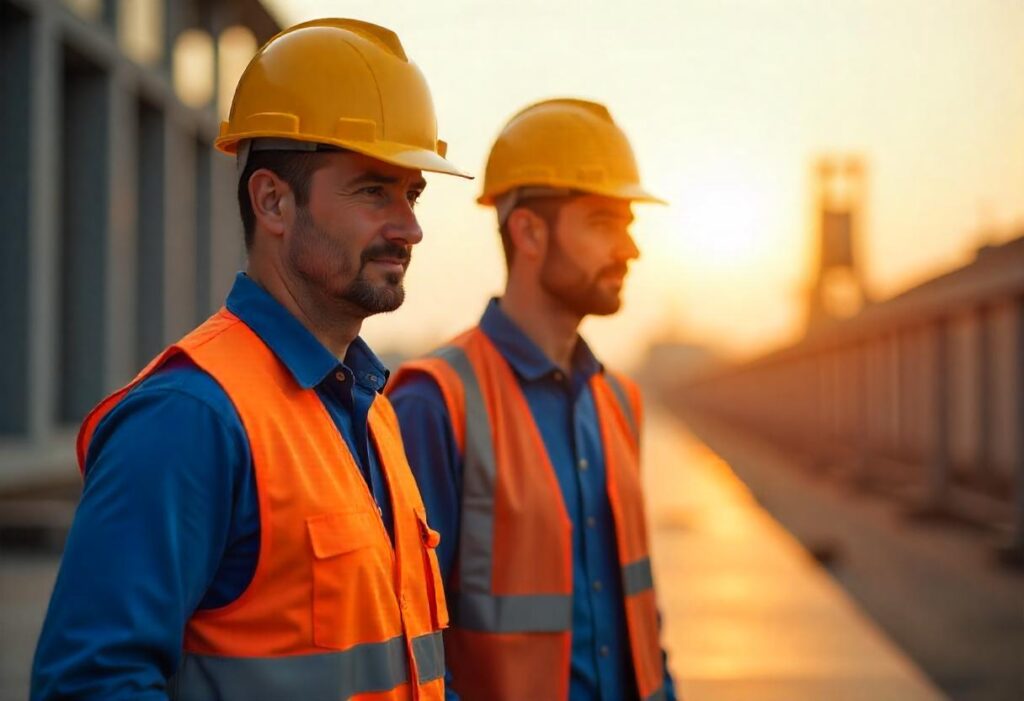
Making decisions is at the heart of every organization. From choosing a supplier to launching a new product line, every step carries some level of risk. But what happens when workplace safety isn’t part of the decision-making process? That’s where real trouble begins.
Workplace accidents, near misses, and even fatalities often result not from a lack of safety tools, but from poor safety planning and decisions made without considering risk factors. Embedding safety priorities into your organization’s decision-making is not just a smart move—it’s a moral and financial necessity.
In this article, we’ll dive deep into how your business can embed safety into its core decisions, share real-life stories that reveal the impact of poor planning, and outline a clear step-by-step approach to protect your workers and your bottom line. By incorporating proven training programs like the IOSH Managing Safely Course, organizations can ensure that safety is not just a priority, but a fundamental part of their operational strategy.
Why Embedding Safety into Decisions is Non-Negotiable
Let’s face it—when deadlines are tight, budgets are limited, and pressure is high, safety often takes a backseat. But this can be a costly mistake.
In 2023, a manufacturing plant in Karachi faced a devastating incident when a boiler exploded, injuring multiple workers. Upon investigation, it was revealed that the equipment had not undergone routine inspection due to a cost-cutting decision made at the managerial level. The aftermath included medical bills, lawsuits, compensation, and significant reputational damage.
What went wrong? Safety wasn’t part of the decision-making process.
Embedding safety means making hazard identification, risk assessment, and preventive measures a fundamental part of every major and minor decision. Whether you’re buying new machinery or reorganizing warehouse shelves, workplace hazards should always be top of mind.
Common Workplace Hazards That Are Often Overlooked
Let’s take a quick look at some of the most overlooked yet common hazards:
- Manual Handling Hazards: Lifting, pushing, or pulling heavy items improperly can cause serious injuries like slipped discs and muscle tears.
- Slips, Trips, and Falls: Often caused by poor housekeeping, uneven surfaces, or lack of proper signage.
- Chemical Hazards: Incorrect storage or handling of hazardous substances.
- Ergonomic Hazards: Poor workstation design leading to long-term strain injuries.
Ignoring these hazards leads to reduced productivity, higher medical costs, and a demotivated workforce.
Step-by-Step Guide to Embedding Safety into Organizational Decisions
Step 1: Involve Safety Teams in Planning
It may sound simple, but one of the biggest failures in safety planning is not involving the Health and Safety Officer during key decisions. Whether it’s construction layout or shift planning, your safety team must have a seat at the table.
Step 2: Use a Risk Assessment Checklist
Before making any major operational decision, use a risk assessment checklist. This includes:
✅ Identifying potential hazards
✅ Evaluating the risk levels
✅ Implementing control measures
✅ Reviewing and updating regularly
Checklists ensure nothing gets overlooked in the rush of daily operations.
Step 3: Train Managers to Think “Safety First”
Many workplace injuries occur not because workers were careless, but because management failed to prioritize safety. Training managers through accredited programs like the IOSH Managing Safely Course helps build a safety-first mindset at the leadership level.
Real-Life Example: A Missed Decision That Led to Injury
Ahmed was a seasoned forklift operator at a logistics company in Lahore. One day, a sudden decision was made by his supervisor to rearrange the storage racks without consulting the safety team. No one thought about the reduced turning radius or visibility issues.
Within a week, Ahmed’s forklift clipped a low-hanging shelf, dropping a box on his leg. The injury led to two surgeries, lost productivity, and significant costs for the employer.
If the decision had gone through a safety review process, the accident could have been avoided.
Build a Safety Culture from the Top Down
You can install the best safety equipment, but if leadership doesn’t promote a culture of safety, it won’t stick. Here’s how to promote a strong safety culture:
- Lead by Example: When managers follow PPE rules and attend safety training, workers are more likely to follow suit.
- Reward Safe Behavior: Implement a recognition program that rewards departments with zero accidents.
- Encourage Reporting: Create a blame-free environment where workers feel comfortable reporting near misses or unsafe conditions.
Safety Officer Course in Pakistan: A Strategic Move for Companies
For organizations serious about improving their workplace safety record, investing in a Safety Officer Course in Pakistan is a step in the right direction.
These courses cover everything from risk management, accident investigation, and legal responsibilities, to developing safety policies that align with international standards. Many companies that enroll their supervisors and team leads in these courses report a noticeable improvement in hazard awareness and incident reduction.
The Role of IOSH Courses in Enhancing Safety Decision-Making
The IOSH Course (Institution of Occupational Safety and Health) is internationally recognized and designed specifically for managers and supervisors. It equips professionals with the tools to make safer, smarter decisions in everyday operations.
With training in areas like risk control, hazard identification, and incident investigation, IOSH-certified individuals play a key role in embedding safety within every layer of the business.
Moreover, IOSH training doesn’t just help reduce accidents—it boosts employee morale, increases efficiency, and enhances your brand reputation as a responsible employer.
Read More: Find Reliable IOSH Course in Multan
Final Thoughts
Embedding safety priorities into organizational decision-making isn’t a one-time task—it’s an ongoing process that needs commitment from every level of the organization.
When you train your leaders, involve safety experts, and build a culture of responsibility, you’re not just preventing accidents—you’re creating a workplace where everyone feels valued and protected.
Whether you’re running a construction firm or a corporate office, hazard awareness and safety-focused decisions will shape your company’s future.



